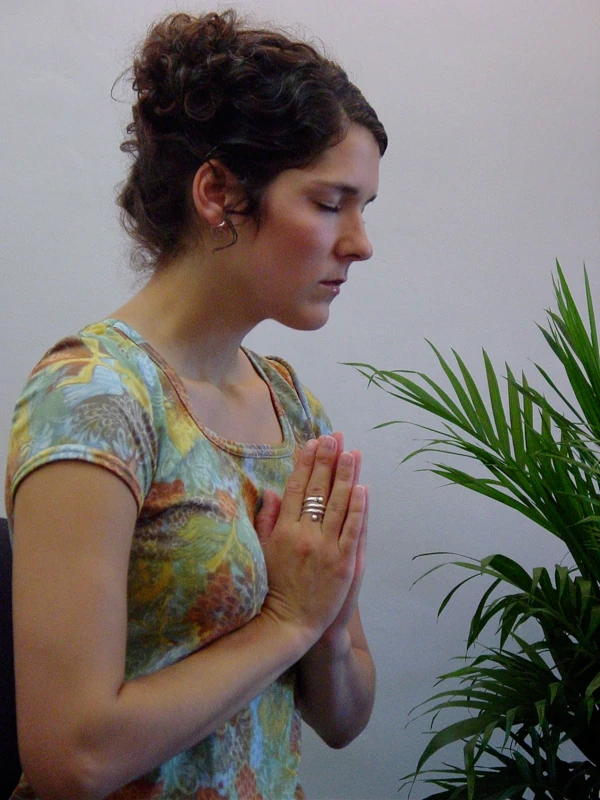
Depression is one of the most common health problems in all age groups. It is an emotional disorder characterized by inactivity, grief, feelings of loss or emptiness, heartache or emotional withdrawal.
Chronic depression may also include physical symptoms such as poor concentration, decreased sex drive, and changes in weight, appetite, and sleep patterns.
The good news is you can do a lot to help relieve depression. Counseling or therapy can help process the emotional roots of depression and support positive life changes. Acupressure and other lifestyle methods complement counseling, for a more complete body-mind approach.
This article includes a wealth of information and resources for your health and healing. You’ll find even more in the comprehensive book,
Acupressure for Emotional Healing. This self-care guide for trauma, stress, and emotional imbalances features step-by-step Acupressure instructions with more than 400 photos and illustrations.
Acupressure for Depression
For best results, combine therapy with Acupressure for depression. Include Acupressure points and techniques, deep breathing, a balanced whole foods diet, and daily exercise, especially aerobic exercise. This comprehensive holistic Acupressure for depression program increases the chance of you making positive changes in your life. You can improve your health and your emotions.
The positive changes you’ll learn about here are beneficial self-help treatments for mild depression. For chronic depression, professional psychotherapy is necessary. The Acupressure for depression methods that you'll find below and in the book, Acupressure for Emotional Healing, can also be a good complement to working with a psychotherapist.
No matter where you are on the range of depressive symptoms, combining Acupressure’s body-oriented therapy with psychotherapy results in increased effectiveness.
Essential Aspects of Depression
When a person is depressed, mood and interest drop dramatically from normal levels. The result is that they experience a lack of enjoyment in activities they used to appreciate.
A negative view develops that may include hopelessness about the future, discouragement, and feelings of worthlessness and low self-esteem.
Depression can become a vicious circle of cause and effect. This is because it often leads to self-defeating behavior, which in turn further deepens the depression. As our morale and self-esteem suffer, we shut down, both emotionally and physically.
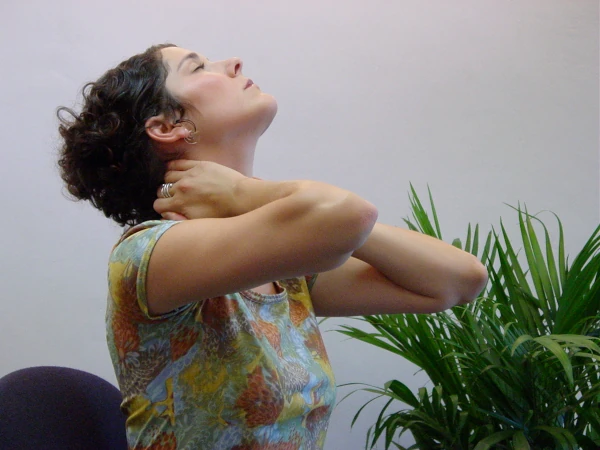
Causes of Depression
Depression can be a signal that something in your life may be lacking or out of balance and needs your attention. We often get depressed, for example, when we don’t have a sense of purpose to our lives or when we lack close, nurturing relationships. Depression can also result from repressed emotions and energies.
Many other factors can contribute to depression, including environmental and social stress, poor or inadequate exercise, poor nutrition and eating habits, medical conditions, chronic pain, personality traits, changes in brain chemistry, and genes. Sometimes a hormone imbalance, such as an abnormality in the function of the thyroid or adrenal gland, can play a role in depression.
Chronic Depression
It is important to distinguish between a short-term, run-of-the-mill depression – what you might call “the blues” – and a more chronic depression. For the latter, professional counseling or therapy are necessary, and sometimes medication as well.
For those who have severe depression and are having trouble getting motivated to implement healthy lifestyle changes, taking medication may help to clear the way to pursue self-care practices such as this emotional healing integration using Acupressure, deep breathing, and exercise.
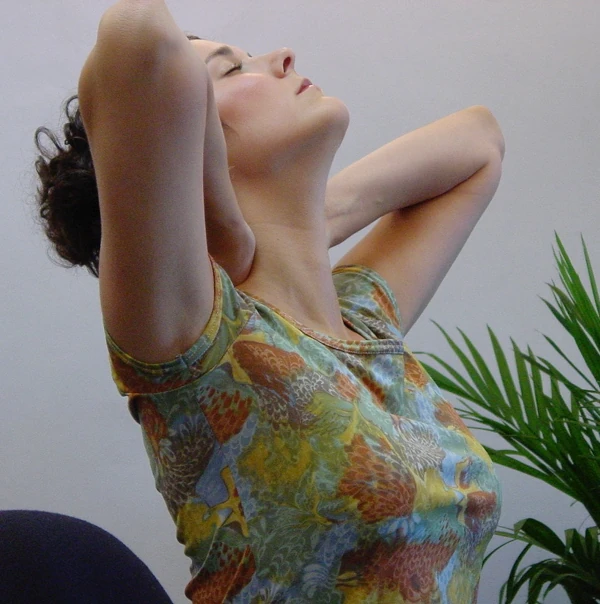
Relieving Depression Using Acupressure's Emotional Healing
The depression-relieving points in this Article release energies inside us that have been blocked. As you release the points, the blocked parts of the body open up, and the feelings repressed by that blockage can surface. You may then be able to gain a new awareness of these feelings and can more fully address the emotional roots of your depression.
As Acupressure points are held with slow, deep breathing, the body relaxes and is able to release deep distress. Acupressure's emotional healing also increases circulation and can expand the absorption of medications. If you take medication, be sure to consult with your doctor to see if your dosage needs to be adjusted as your health improves.
The Role of Diet & Exercise
Enjoying a healthy way of eating ensures that you are fully nourished. And research shows that regular aerobic exercise relieves symptoms of depression and improves your mood. Each of these aspects is covered in detail in sections below.
Holistic Self-Acupressure for Relieving Depression
The comprehensive self-care approach in this article includes all the key elements for relieving depression — Acupressure, deep breathing, activities for emotional balance, dietary recommendations, and aerobic exercise. It offers you the most effective techniques to improve your health and your life.
Practice any of the following techniques at any time to quickly shift your mood to a lighter one. All you need is a few minutes – you don’t have to practice all of them. Simply pick one or two, and explore which ones give you the best results for counteracting your depression.
Daily Aerobic Exercise for Countering Depression
It’s important to move your body every day – your body is designed to move. Twenty or thirty minutes of aerobic exercise can both prevent and relieve minor depression. Try brisk walking, dancing (just put on some good music and move to the beat), bicycling, swimming, or jogging.
When you don’t exercise, your metabolism can become sluggish. The tendency to get depressed or to overeat increases. When you exercise regularly, however, you tend to develop a healthy appetite and a positive frame of mind.
Once you slowly increase your endurance and become more fit, the daily exercise can enable you to obtain greater vitality. Choose the kinds of exercise you enjoy and vary them from day to day. Good options are brisk walking, jogging, swimming, bicycling, or dancing – put on some music and move any way you want.
Scientific studies have shown that regular exercise is very beneficial emotionally. Exercise reduces stress hormones and increases the production of endorphins, the chemicals in our brain that improve mood and are natural painkillers.
Aerobic exercise naturally regulates and balances your whole system. It develops muscle tone, stimulates deep breathing and sweating, and increases blood circulation. It’s good for the whole body – heart, lungs, muscles, bones, brain, and more. Vigorous aerobic exercise results in deep breathing, which is an important factor for counteracting depression. Enjoy moving your body!

Hold Your Heart
An Acupressure Exercise
Sit comfortably in a chair or kneel on the floor. Place the heel of your hand on the center of your breastbone to hold to Sea of Tranquility point (CV 17). Place your other hand over this hand to support your chest firmly.
Relax your head forward. Begin long, slow, deep breathing with your eyes closed for at least two minutes.
This exercise activates a potent point to better assimilate oxygen into your system. It opens the breath and facilitates your ability to let go and receive healing energy.
Deep Breathing Meditation
Depression and other emotional imbalances can result from shallow breathing, which causes an inadequate supply of oxygen in the blood. There are potent points described in this article to increase blood circulation, which, with deep breathing, increase the oxygen supply and enhance the benefits of Acupressure.
When you are feeling low notice your breathing tends to be shallow and constricted. A simple, effective technique for combating mild depression is to increase the depth of your breathing. This sounds simple, but it requires deep concentration.
Acupressure Meditation Instructions
Find a quiet spot, either indoors or out in nature. Sit comfortably with your spine straight, and touch your thumb and middle fingers together.
Close your eyes and focus your full attention on breathing deeply. This relaxes your body and will naturally open your mind to experience positive thoughts and creative images. If you increase the depth of your breathing so that you are taking only four or five breaths per minute, within five minutes this exercise will change the way you feel.
- On your deep inhalation, imagine your are breathing in healing energy.
- As you slowly exhale, imagine that you are releasing any burdens and past hurts.
You can also focus on how each deep breath strengthens your ability to take care of yourself. Continue this Deep Breathing Meditation for five to ten minutes. Then open your eyes and stretch, going about your day with renewed balance and calmness.
Stimulating Hot & Cold Shower
After a hot shower, decrease the water temperature as low as you can tolerate for a minute or two. Cold water stimulates the nerves close to the surface of the skin and is rejuvenating.
Note: Do not use this technique if you have a serious illness or are premenstrual, menstruating, or pregnant. People with these conditions should keep themselves warm.
Journal Writing & Drawing
Take five or ten minutes and write down whatever you’re feeling. Allow yourself to express yourself fully, writing a stream of thoughts, and also drawing doodles or sketches, if you like.
When you’re done, you can either tear up or burn the pages for letting go of the feelings, or save your expressions to refer to later. You can try both ways to see what works best for you.
Emotional Healing Aspects
The following aspects cultivate a healthy emotional life for preventing and relieving depression.
Self-Care & Positive Thinking
Consciously choose activities that fulfill your personal growth and promote your self-esteem. Exploring this website can provide you with many of these personal growth opportunities.

Healthy Relationships
Pursue friendships that support your health and fulfill your growth. Seek ways to meet positive people who are likely to share your interests. Become involved with people who have a positive attitude, share mutually in giving and receiving, and who show their love and kindness.
Meaningful Work
If your job makes you feel depressed, explore what other work you would find more satisfying. A vocational counselor can guide you to find other types of work, suggest training resources, and open new opportunities. It’s worth the effort to discover a form of service that contributes to your sense of purpose in life.
Environmental Aspects
Gloomy surroundings can perpetuate depression. Some people need to live or work in an environment that has abundant natural light and fresh air. Improvements such as installing a mirror to reflect more light or a fan for better ventilation can make a positive difference.
Goals and Visions for the Future
Planning to do something meaningful or exciting in the future that you can look forward to can prevent depression. Visualize desirable changes in your life and make goals for working towards them.
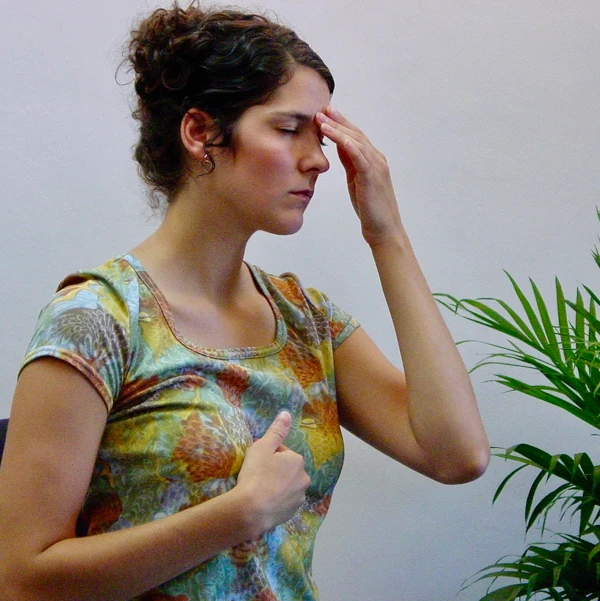
Dietary Recommendations
What you eat plays an important role in maintaining good health and resistance to illness. When you eat processed foods, your system can get sluggish.
In contrast, wholesome fresh foods can strengthen your body and build your immune system, reinforcing the body’s ability to protect itself. They provide the nourishment your body needs to flourish.
Foods to Enjoy
A healthy diet consists of a variety of fresh vegetables, whole grains, fish, poultry, beans, nuts, seeds, and fresh fruits. You can learn how to make satisfying meals and nourish your body at the same time.
Foods to Avoid
The following unbalanced and processed foods are good to avoid or to eat less of: processed foods, sugar, white flour products, red meat, salt, fried foods, and artificial colors, flavors, and preservatives.
If you eat dairy products, be sure to get plenty of daily exercise for your overall health.
Hypoglycemia
Depression can also result from hypoglycemia, or low blood sugar. This is a condition characterized by fluctuating emotions from extreme highs to extreme lows. Hypoglycemia can be caused by too much sugar in the diet.
The consumption of sugar raises your blood sugar level, producing a sudden burst of energy. To balance this surge of blood sugar, however, the pancreas then overproduces insulin, which drastically lowers the blood sugar level, causing fatigue, depression, and anxiety.
Sufferers of hypoglycemia should avoid sugar, alcohol, coffee, and fruits with a high sugar content. Instead, choose fresh vegetables, whole grains, miso soup, sprouts, and seaweed. These are excellent foods that help balance your body.
Vitamin Deficiencies
Depression can also be caused by deficiencies of vitamins C and E. For a rich source of these vitamins, make a salad of parsley and cucumber dressed with fresh lemon juice.
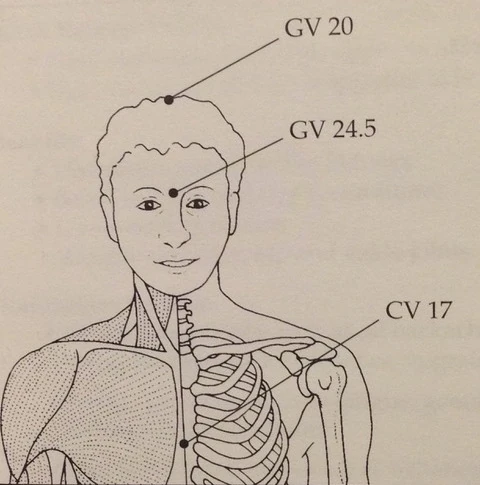
Depression Prevention & Relief Routine
Sit comfortably in a chair, with your spine straight.
1. Hold GV 20 With GV 24.5
Place your right fingertips on the Hundred Meeting point (GV 20, on the top of your head), and your left fingertip on the Third Eye point (GV 24.5). Close your eyes, and breathe deeply for two minutes.
2. Touch GV 20 With CV 17
Move your left hand to the Sea of Tranquility point (CV 17, located at the center of the breastbone). Continue to breathe deeply for another two minutes.
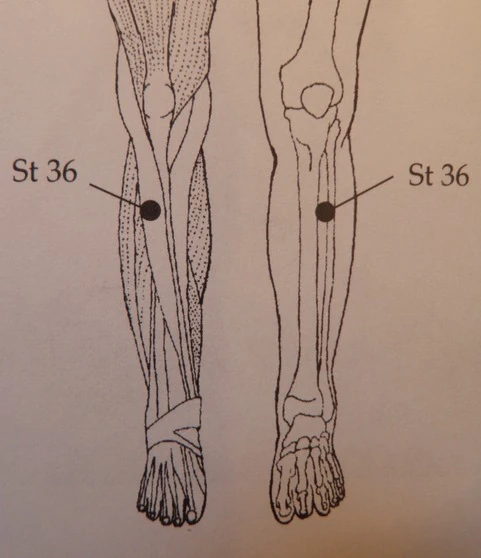
3. Briskly Rub Both St 36
Rub the Three Mile point, on both legs, using your knuckles, for one minute. This rejuvenating point is located on the outside of the shinbone, four finger-widths below the kneecap.
After rubbing, hold the Three Mile point firmly for one minute, as you breathe deeply. Curve your fingers to hook into the point, pressing the warmth that was created when the point was rubbed with your knuckles.
4. Stretch and Shake
Stand up and gently shake your shoulders and feel your body come into alignment. Slowly stretch your arms, keeping your legs straight, gradually come downward to stretch the backs of your legs. Bend your knees, coming back to a standing position. Swing your arms back and forth ten times. Then loosely shake out any tension held within your entire body to feel more alive and present so you can enjoy life fully.







